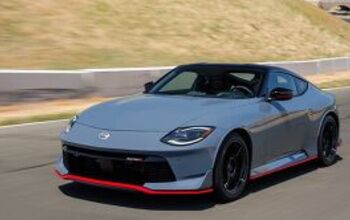Millennials Really Do Intend to Buy Cars. Thank the Pandemic.
Forget all you’ve heard about Millennials (24-39 years old) and their disdain for automobiles. COVID-19 has changed that, as 31 percent of those without a car intend to buy one in the next six months, and 45 percent of them are Millennials.
EY, a global leader in assurance, tax, strategy, and consulting services, and a member of Ernst & Young Global Limited, issued their 2020 EY Mobility Consumer Index, surveying over 3,300 consumers across nine countries. Thirty-one percent of the respondents who don’t own a car plan to buy one in the next six months, while 20 percent that already own a car say they would be open to buying another vehicle. Both groups said that one of their principal reasons to purchase is the pandemic.
Seventy-eight percent said that they would be more likely to use their cars for post-pandemic travel, with Millennials comprising more than half that number at 52 percent.
Despite their vocal support of the Green New Deal and its “Overhauling of transportation systems to eliminate pollution and greenhouse gas emissions from the transportation sector, through investment in zero-emission vehicles and manufacturing; clean, affordable, and accessible public transportation; and high-speed rail”, 71 percent who presently don’t own a car are looking for a new vehicle that is gas- or diesel-powered, with 23 percent who want a hybrid, and only 6 percent interested in a purely electric vehicle.
Public Transportation Usage Falls
Public transportation usage for work travel has declined 69 percent from pre-pandemic levels, and John Simlett, EY Global Future of Mobility Leader said, “The COVID-19 pandemic is reshaping the marketplace. Millennials leading the increase in car ownership globally would have been unthinkable a year ago, particularly in terms of buying non-electric vehicles. The industry should recognize that there is a new market out there that didn’t exist until very recently. But with more people buying cars and car usage expected to increase, this leaves policymakers with some difficult questions to answer: How to accommodate all these cars on our road? Aim for a more diverse mobility mix? How will this trend impact investment in public transportation? Is this sustainable, and if not, what needs to be done and by whom?”
In addition to the reduction in public transportation usage for work, there has been a 61 percent decline in use for leisure and entertainment pursuits and a 53 percent reduction for household and social travel.
Italian and German respondents, at 47 percent and 46 percent respectively, are more likely to buy a new car. Ninety percent of Chinese, 85 percent of Indian, and 81 percent of Germans say they will increase their car usage.
Simlett said, “The numbers in emerging markets like China and India bring optimism to automotive executives who have been concerned about the expected sales recovery in those regions. While sales in these markets have already bounced back to some extent, there is room for that trend to continue and this seems to suggest that there is healthy demand on the horizon.”
The Mobility Consumer Index (MCI) tracks the impact of COVID-19 on mobility, providing a unique insight into the shift in personal mobility and car buying behavior amidst the pandemic. Based on a global survey of more than 3,300 consumers in China, Germany, India, Italy, Singapore, South Korea, Sweden, the United Kingdom and the United States during August 2020, the MCI is indicative of changing travel patterns and preferences, centered on the rise of working from home, reduced time spent on entertainment and socializing, and increasing digital behavior. Mobility choices and the buying behaviors of a diverse set of consumer personas are among the index’s insights.
Will vaccination make any difference in mobility, returning people to public transportation, or has the coronavirus already changed car buying behavior for the foreseeable future?
[Image: Fractal Pictures/Shutterstock.com]
With a father who owned a dealership, I literally grew up in the business. After college, I worked for GM, Nissan and Mazda, writing articles for automotive enthusiast magazines as a side gig. I discovered you could make a living selling ad space at Four Wheeler magazine, before I moved on to selling TV for the National Hot Rod Association. After that, I started Roadhouse, a marketing, advertising and PR firm dedicated to the automotive, outdoor/apparel, and entertainment industries. Through the years, I continued writing, shooting, and editing. It keep things interesting.
More by Jason R. Sakurai
Latest Car Reviews
Read moreLatest Product Reviews
Read moreRecent Comments
- Plaincraig 1975 Mercury Cougar with the 460 four barrel. My dad bought it new and removed all the pollution control stuff and did a lot of upgrades to the engine (450hp). I got to use it from 1986 to 1991 when I got my Eclipse GSX. The payments and insurance for a 3000GT were going to be too much. No tickets no accidents so far in my many years and miles.My sister learned on a 76 LTD with the 350 two barrel then a Ford Escort but she has tickets (speeding but she has contacts so they get dismissed or fine and no points) and accidents (none her fault)
- Namesakeone If I were the parent of a teenage daughter, I would want her in an H1 Hummer. It would be big enough to protect her in a crash, too big for her to afford the fuel (and thus keep her home), big enough to intimidate her in a parallel-parking situation (and thus keep her home), and the transmission tunnel would prevent backseat sex.If I were the parent of a teenage son, I would want him to have, for his first wheeled transportation...a ride-on lawnmower. For obvious reasons.
- ToolGuy If I were a teen under the tutelage of one of the B&B, I think it would make perfect sense to jump straight into one of those "forever cars"... see then I could drive it forever and not have to worry about ever replacing it. This plan seems flawless, doesn't it?
- Rover Sig A short cab pickup truck, F150 or C/K-1500 or Ram, preferably a 6 cyl. These have no room for more than one or two passengers (USAA stats show biggest factor in teenage accidents is a vehicle full of kids) and no back seat (common sense tells you what back seats are used for). In a full-size pickup truck, the inevitable teenage accident is more survivable. Second choice would be an old full-size car, but these have all but disappeared from the used car lots. The "cute small car" is a death trap.
- W Conrad Sure every technology has some environmental impact, but those stuck in fossil fuel land are just not seeing the future of EV's makes sense. Rather than making EV's even better, these automakers are sticking with what they know. It will mean their end.


































Comments
Join the conversation
"Millennials Really Do Intend to Buy Cars" Oh no!!! They better don't! There are already too many cars and too many people on the planet.
Anyone else want to puke when seeing the photo at the top of this article. There is something just so irritating about these people. Add to that their idiotic obsession with their phones and photographing everything for their "insta" and their "feed" or whatever the hell they call their stupid social media. Huge eye roll.